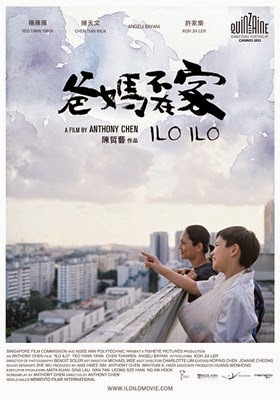During the Q&A, the director mentioned having been taken to task for not providing any critique of the OFW (Overseas Filipino Worker) system. I was just happy that we didn't get either of the two "typical" OFW horror stories--Filipinas being physically or sexually victimized, or victimizing the families they work for, stealing money, abusing children and elders, etc. Hell, I half-expected Teresa (the maid) to have some anting-anting which makes her some Asian Mary Poppins who teaches young Jiale about, I dunno, love and family or somesuch.
(She probably would have if this was some Hollywood film.)
Anyway, I'm fine that the film wasn't about the plight of OFWs for two reasons. One, I think Chen gives a pretty even-handed representation of the part most people play in that whole system, in a way which jives with the memories I've had as a child observing Filipinas who were brought over to the United States to help with the families of other Filipinos. And two, that kind of message would've taken away from the film's focus on the compelling study of how four very different people cope against forces outside their control.
Anyway, I'm fine that the film wasn't about the plight of OFWs for two reasons. One, I think Chen gives a pretty even-handed representation of the part most people play in that whole system, in a way which jives with the memories I've had as a child observing Filipinas who were brought over to the United States to help with the families of other Filipinos. And two, that kind of message would've taken away from the film's focus on the compelling study of how four very different people cope against forces outside their control.
5 out of 5.
